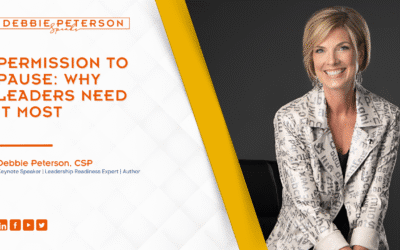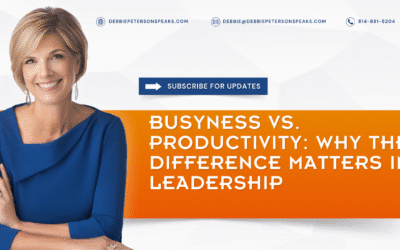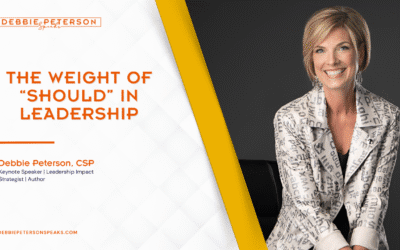I used to think readiness was something you earned.
After the title. After the training. After someone else said, “Yes, now you’re ready.”
But here’s the truth I wish someone had told me. Readiness isn’t handed to you. It’s not a status. It’s a state of mind. Most of us were ready long before we were told we weren’t.
At one point in my corporate career, I felt it. That internal hum that said, “You’re ready. Ask for more.” And I did. I walked into a room and asked for the next step.
What I got was the pat-pat on the head.
A polite brush-off. A subtle “not yet.” And because I trusted their response more than my own inner knowing, I took it in as truth. I swallowed it whole. And I told myself the story that I wasn’t ready.
That was the worst thing I could have done.
Because readiness doesn’t live outside you. It’s not about having all the answers. It’s about believing you’ll figure them out when the time comes. It’s about being willing to go find what you don’t yet know. And that right there? That willingness? That’s what most people aren’t doing.
Here’s what I’ve learned through the lens of NLP. Limiting beliefs are patterns of thought that act as internal barriers. They sound like, “I’m not qualified enough,” or “Who am I to lead?” and usually stem from a past experience or someone else’s opinion that we accepted as truth. Once they settle in, they shape how we see ourselves and what we believe we’re capable of. And mindset drives everything. They are the lies we tell ourselves so often, we stop questioning them. They come from moments like mine. Moments when we let someone else’s assessment outweigh our own belief. And once they settle in, they shape our mindset. And mindset drives everything.
If I had kept listening to that story , “You’re not ready,” I would have stayed small. I would have played it safe. But the feeling inside wouldn’t leave me alone. That’s the thing about clarity. It doesn’t shout, but it sure doesn’t let you forget.
Eventually, I pushed back. I stopped waiting for permission. I started claiming my readiness instead of chasing it. That decision changed everything. It led me to build a business, serve leaders who were doubting themselves, too, and speak truth into rooms that are often filled with posturing instead of permission.
I’ve said yes before I felt fully ready more times than I can count. And every time, I found my footing. Not because I knew all the steps. But because I trusted I’d figure it out. Because I had people around me who could guide me. Because I believed that readiness is remembered, not earned.
So here’s what I want you to know.
No one will ever give you what you won’t claim for yourself.
And readiness doesn’t mean you’re fearless. It just means you care enough to try, even when you’re unsure. It means you believe there’s something in you worth listening to. And I see that in you, even if you haven’t said it out loud yet.
And you don’t need to get ready. You already are.
And when organizations don’t create space for that kind of self-trust? They lose capable leaders to burnout, boredom, or silence. I see it happen all the time. Not because those leaders weren’t ready, but because no one told them they already were.
Your Next Clear Move™:
Think back to a moment where you were ready, but didn’t feel like it. What would’ve changed if you trusted yourself a little earlier?
Now try this:
- Write down one belief you hold about why you’re not ready for something right now.
- Ask yourself: Whose voice is that really?
- Replace it with a belief that supports forward movement. Even something like, “I’m open to figuring it out.”
- Take one small action today from that new belief.
If your definition of readiness has been shaped by someone else’s timeline, maybe it’s time to rewrite it. Start by remembering who you were before you were told to wait.
If you want support helping your leaders claim that readiness, before burnout, before doubt, before disengagement sets in, let’s talk. The Readiness Reset™ keynote and my Readiness Labs are built for this moment. They’re not just about leadership development. They’re about leadership reconnection.


